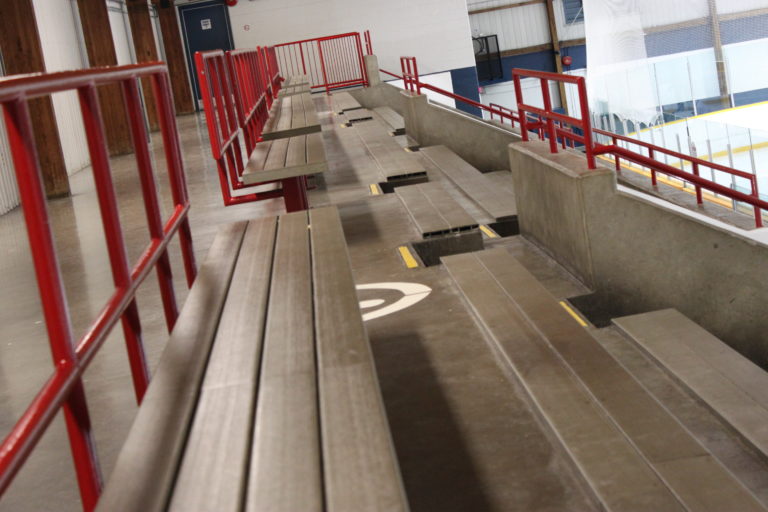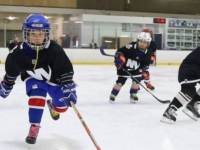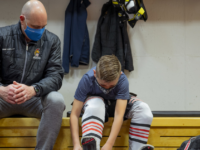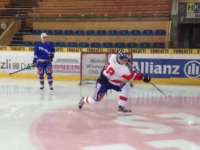Hockey requires practice, and practice doesn’t always come at the most convenient times. For parents and children alike, practice can feel like a chore, especially when it happens in the early morning. Kids need a lot of sleep and may not like to get out of bed early, while parents may be used to an early morning routine that did not previously involve hockey practice. Still, these practices must be attended in order to get better, so here are some tips for both players and parents to survive these early morning practices.
Get Enough Sleep
This goes for child and parent alike. If we don’t allow our bodies the proper amount of rest, we will be tired, groggy, and less efficient throughout the entirety of our day. This means that kids will be dragging at hockey practice and parents may be grumpier or less able to work after the practice. Most kids need about 9-11 hours of sleep a night, and adults require about 7-9. Everyone is different, but it is important to know your body and schedule your bedtime accordingly so that you can feel refreshed and ready to go in the morning.
Plan for Practice the Night Before
Have all of your gear ready to go so that you don’t have to scramble to get it in the morning. You can even have your breakfast planned out so that it’s ready to eat right when you wake up. You’ll appreciate not having to be on top of everything the second you roll out of bed, allowing you time to get adjusted to the day and more easily be on your way to practice.
Drink Water
Hydration is highly important for everyone, but children especially need to drink enough water if they are going to be participating in sports. Having a glass of water in the morning can get the metabolism going and better prepare them for physical activity. Mom and Dad should stay hydrated too (following coffee or tea of course!), as they likely have a lot of running around to do in their day both before and after practice.
Offer Rewards for Waking Up Early
Kids may be more receptive to early practices if they have an additional incentive to get up. Depending on the age, this could mean a play date with a friend, an extra 20 minutes of TV or computer time, or even one of their favorite snacks. If they feel that they are being rewarded for following their practice schedule, they will be more likely to wake up happily and ready to go.
Keep a Routine
Sticking to a routine allows your body to get used to early morning practices which will lead to improved focus, concentration, and performance. Kids should get used to this routine even on days when they don’t have practice in the morning. They may think that they deserve to sleep in, but it will only serve to make them crabbier and more tired the next day when they can’t fall sleep as easily that night. Our bodies work more efficiently when we put ourselves into a routine, and we need all the efficiency we can get when we play a sport that is as physically demanding as hockey. You can combine this routine with rewards in order to give the child incentive to get to bed early and rise at the same time every morning.
Eat Breakfast
You will need energy for hockey practice, so it is important to get some nutrients in your body beforehand. You don’t necessarily want something that is so heavy it will put you back to sleep, so try to find a balanced, light, healthy breakfast…even to go if necessary!
Finish Important Work the Day Before
This advice is meant for parents and children alike. For kids, get done with your homework, even if it isn’t due until the day after practice. Parents can finish up tasks at the office when they have free time. This will help you to enjoy hockey practice more and not have to worry about performing these tasks when you are more tired at the end of the day. Finishing your work ahead of time will reduce your stress levels and make you feel more prepared for the day ahead of you, especially if it starts with an intense hockey practice.
Take Advantage of Natural Light
Don’t use blackout shades or drapes in your or your kid’s bedrooms. You and the kids will wake up more naturally and benefit from the extra energy you get from more exposure to daylight. This will also help with your natural sleep cycle and allow you to get into that routine that was mentioned earlier. If you have a bright enough home, you may even be waking up before your alarm clock goes off! Speaking of alarm clocks…
Put your Alarm Clock on the Other Side of the Room
Whenever our alarm goes off in the morning, it is extremely tempting to hit snooze over and over again. It happens to the best of us, but it doesn’t really do much to make us less tired. Instead of having your clock or phone right next to your bed, plug it in on the other side of the room and set the alarm to a loud setting. This will force you to get out of bed to turn it off. Once you are up, you’ll be more likely to go about your day rather than going back to bed to snooze for an extra 10 minutes.
Have the Car Packed and Ready
There’s no worse feeling than being rushed in the morning, so try to have the car packed and ready to go the night before a practice. This way, you won’t have to run around looking for bags or gear. This peace of mind will put you in a better attitude to perform in your practice!






